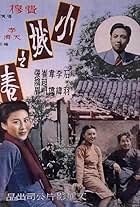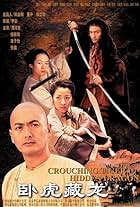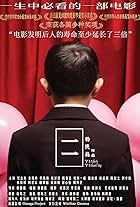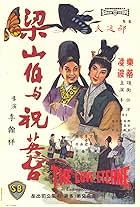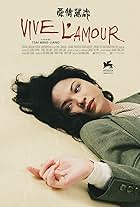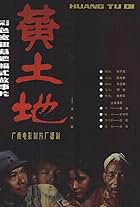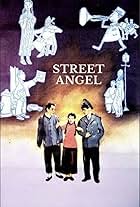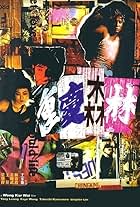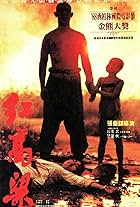Copy
影史百大華語電影 100 Greatest Chinese-Language Films
by GoodbyeSouth ? Created 7 years ago ? Modified 1 year ago
華語電影近年在國際影壇受到的注目,有目共睹。但相較于那些被忽視、被遺忘的杰作,這些成果只是被挖掘出的一角而已。金馬獎作為影壇歷史最悠久、獎勵區(qū)域最廣的華語電影獎項,猶難呈現完整版圖,因此“臺北金馬影展執(zhí)行委員會”邀請華語電影專家及杰出影人,票選出“影史百大華語電影”。
受邀的票選者,以臺灣為主;另外還包括香港、大陸影人,以及海外的華語電影專家。不同于其他類似票選皆以電影研究者(學者、影評人、策展人)為主,或者最多加入導演看法(例如最資深的Sight & Sound雜志從1952年起每十年選拔一次影史十大影片,前四屆都以影評人意見為結論,自1992年起才另增導演),“影史百大華語電影”票選除了邀請上述影評及導演,也增加了編劇、制片、演員、以及其他幕后影人、甚至長期關注影壇發(fā)展的藝文界人士。而且除了資深權威,也試圖加入年輕世代的意見。每位票選者,就影史初始時期到票選展開(2010年8月)已完成的所有華語影片,不限出品地、規(guī)格、類型,不分排名,最多可提出30部的片單,供主辦單位統計。
結果,共有482部影片獲得推薦。票數最高的是《悲情城市》(1989),前十名還包括《牯嶺街少年殺人事件》(1991)、《童年往事》(1985)、《阿飛正傳》(1990)、《小城之春》(1948)、《臥虎藏龍》(2000)、《一一》(2000)、《戀戀風塵》(1986)、《龍門客棧》(1967)、《花樣年華》(2000)。“百大”當中,完成時間最早的是1933年的《小玩意》;最新的則是2009年的《不能沒有你》。另外,主辦單位也依據所有得票影片,計算出“五十大華語導演”,某些因作品眾多導致票數分散的導演,得以在此得到部分“平反”,加總后排名前十則是侯孝賢、楊德昌、王家衛(wèi)、李安、胡金銓、張藝謀、蔡明亮、李行、許鞍華、陳凱歌、關錦鵬。
面對浩瀚影海,許多受邀者都自謙難以顧全整個影史,甚至因此婉拒了投票。畢竟除了政治、歷史的乖隔,曾教不同地區(qū)的華語電影有很長時間難以交流;而影史整理的艱難殘漏(包括論述研究與影片保存),也讓即使交流頻繁了,仍有不少尚待補齊的新舊史頁。電影史的寫法不只一種,或許我們可以把這次活動當成一個嘗試,透過122位專業(yè)人士的分享,“百大”名單等同他們心中華語影史重要作品的最大交集。但請不要忽略每位票選者的各自名單,除了足以探究不同品味與角度外,那些被個別專家奉為經典的遺珠,說不定就是亟待認識的瑰寶。
因此,“影史百大華語電影”的票選結果,不會只是一份名單,還有一本將于2011年8月份出版的中英對照的專書。它的問世除了要感謝在影史影響與心頭所愛之間反覆掙扎的票選者與撰稿人;更要感激這一百部電影背后的創(chuàng)造者們,因為您們的創(chuàng)意,啟發(fā)了無數人在愛電影、拍電影的路上,有了繼續(xù)向前的標竿。
In recent years we have witnessed the increasing attention that the Chinese-language films have attracted at the international film festivals. However in contrast to the large amount of neglected and forgotten masterpieces, these films which gained international recognition are just a small fraction of hidden treasure. Even the Golden Horse Awards which is the most prestigious and longest-running festival in all Chinese-speaking territories cannot present the whole picture. Therefore the Taipei Golden Horse Film Festival Executive Committee decided to invite the Chinese-language cinema experts and outstanding film-makers to vote for the ‘100 Greatest Chinese-language Films’ of all time.
People who were invited to cast their votes are based mainly in Taiwan but film-makers from Hong Kong and China and Chinese-language cinema experts worldwide are also included on the list. What is unique about the our list is that unlike some similar selections in which the participants are mostly film scholars, critics or festival programmers and probably a few film directors, we invited not only professionals mentioned above but scriptwriters, producers, actors, crew members and people working in art and literature. More significantly, both the established figures and young film-makers have cast their votes in this poll. Every single Chinese-language film completed before August 2010 is qualified and each voter gave their choices of up to 30 films (not in any order) to the Golden Horse Committee for the final counts.
The result has come out – 482 films are recommended. A City of Sadness (1989) got the most votes and the other films in the top ten include A Brighter Summer Day (1991), A Time to Live, A Time to Die (1985), Days of Being Wild (1990), Spring in a Small Town (1948), Crouching Tiger, Hidden Dragon (2000), Yi Yi: A One and a Two (2000), Dust in the Wind (1986), Dragon Inn (1967) and In the Mood for Love (2000). Amongst the ‘100 Greatest’, the earliest one, Little Toys, dates back to 1933 while the latest is No Puedo Vivir Sin Ti made in 2009. Furthermore, based on the votes each director has received the Committee published the ‘50 Greatest Chinese-language Film Directors’. This gives some prolific directors whose votes spread over their films the recognition they deserve. The directors who made into the top ten are HOU Hsiao-Hsien, Edward YANG, WONG Kar-Wai, Ang LEE, King HU, ZHANG Yi-Mou, TSAI Ming-Liang, LEE Hsing, Ann HUI, CHEN Kai-Ge and Stanley KWAN.
Many people who were invited to vote expressed their concern that their knowledge in Chinese-language cinema might not be good enough to judge all films made throughout the history. Some of them even turned down our invitation for this very reason. As a result of the political and historical barriers, the interaction between film industries in different Chinese-speaking territories had ceased for decades. This makes compiling the history of Chinese-language cinema even more difficult (both in terms of research methodology and film preservation). Even after the interaction resumed more than ten years ago, the picture remained incomplete. We believe that there is more than one way to write the history and perhaps we could view this selection as an attempt. The ‘100 Greatest’ are the films which received the unanimous appreciation from 122 professionals however we hope that the readers would be encouraged to look into the rest of the recommended films. These films may not only broaden our taste and provide different viewpoints but prove to be the long-forgotten hidden treasure.
Therefore the result of the vote for the ‘100 Greatest Chinese-language Films’ will not end with a just list but a book. Both Chinese and English is scheduled to be published in August 2011. We would like to thank not only the voters and the reviewers who had made difficult decisions in selecting films but also the film-makers who made these films. Their creativity has inspired countless cineastes and set a great example for us to follow.
受邀的票選者,以臺灣為主;另外還包括香港、大陸影人,以及海外的華語電影專家。不同于其他類似票選皆以電影研究者(學者、影評人、策展人)為主,或者最多加入導演看法(例如最資深的Sight & Sound雜志從1952年起每十年選拔一次影史十大影片,前四屆都以影評人意見為結論,自1992年起才另增導演),“影史百大華語電影”票選除了邀請上述影評及導演,也增加了編劇、制片、演員、以及其他幕后影人、甚至長期關注影壇發(fā)展的藝文界人士。而且除了資深權威,也試圖加入年輕世代的意見。每位票選者,就影史初始時期到票選展開(2010年8月)已完成的所有華語影片,不限出品地、規(guī)格、類型,不分排名,最多可提出30部的片單,供主辦單位統計。
結果,共有482部影片獲得推薦。票數最高的是《悲情城市》(1989),前十名還包括《牯嶺街少年殺人事件》(1991)、《童年往事》(1985)、《阿飛正傳》(1990)、《小城之春》(1948)、《臥虎藏龍》(2000)、《一一》(2000)、《戀戀風塵》(1986)、《龍門客棧》(1967)、《花樣年華》(2000)。“百大”當中,完成時間最早的是1933年的《小玩意》;最新的則是2009年的《不能沒有你》。另外,主辦單位也依據所有得票影片,計算出“五十大華語導演”,某些因作品眾多導致票數分散的導演,得以在此得到部分“平反”,加總后排名前十則是侯孝賢、楊德昌、王家衛(wèi)、李安、胡金銓、張藝謀、蔡明亮、李行、許鞍華、陳凱歌、關錦鵬。
面對浩瀚影海,許多受邀者都自謙難以顧全整個影史,甚至因此婉拒了投票。畢竟除了政治、歷史的乖隔,曾教不同地區(qū)的華語電影有很長時間難以交流;而影史整理的艱難殘漏(包括論述研究與影片保存),也讓即使交流頻繁了,仍有不少尚待補齊的新舊史頁。電影史的寫法不只一種,或許我們可以把這次活動當成一個嘗試,透過122位專業(yè)人士的分享,“百大”名單等同他們心中華語影史重要作品的最大交集。但請不要忽略每位票選者的各自名單,除了足以探究不同品味與角度外,那些被個別專家奉為經典的遺珠,說不定就是亟待認識的瑰寶。
因此,“影史百大華語電影”的票選結果,不會只是一份名單,還有一本將于2011年8月份出版的中英對照的專書。它的問世除了要感謝在影史影響與心頭所愛之間反覆掙扎的票選者與撰稿人;更要感激這一百部電影背后的創(chuàng)造者們,因為您們的創(chuàng)意,啟發(fā)了無數人在愛電影、拍電影的路上,有了繼續(xù)向前的標竿。
In recent years we have witnessed the increasing attention that the Chinese-language films have attracted at the international film festivals. However in contrast to the large amount of neglected and forgotten masterpieces, these films which gained international recognition are just a small fraction of hidden treasure. Even the Golden Horse Awards which is the most prestigious and longest-running festival in all Chinese-speaking territories cannot present the whole picture. Therefore the Taipei Golden Horse Film Festival Executive Committee decided to invite the Chinese-language cinema experts and outstanding film-makers to vote for the ‘100 Greatest Chinese-language Films’ of all time.
People who were invited to cast their votes are based mainly in Taiwan but film-makers from Hong Kong and China and Chinese-language cinema experts worldwide are also included on the list. What is unique about the our list is that unlike some similar selections in which the participants are mostly film scholars, critics or festival programmers and probably a few film directors, we invited not only professionals mentioned above but scriptwriters, producers, actors, crew members and people working in art and literature. More significantly, both the established figures and young film-makers have cast their votes in this poll. Every single Chinese-language film completed before August 2010 is qualified and each voter gave their choices of up to 30 films (not in any order) to the Golden Horse Committee for the final counts.
The result has come out – 482 films are recommended. A City of Sadness (1989) got the most votes and the other films in the top ten include A Brighter Summer Day (1991), A Time to Live, A Time to Die (1985), Days of Being Wild (1990), Spring in a Small Town (1948), Crouching Tiger, Hidden Dragon (2000), Yi Yi: A One and a Two (2000), Dust in the Wind (1986), Dragon Inn (1967) and In the Mood for Love (2000). Amongst the ‘100 Greatest’, the earliest one, Little Toys, dates back to 1933 while the latest is No Puedo Vivir Sin Ti made in 2009. Furthermore, based on the votes each director has received the Committee published the ‘50 Greatest Chinese-language Film Directors’. This gives some prolific directors whose votes spread over their films the recognition they deserve. The directors who made into the top ten are HOU Hsiao-Hsien, Edward YANG, WONG Kar-Wai, Ang LEE, King HU, ZHANG Yi-Mou, TSAI Ming-Liang, LEE Hsing, Ann HUI, CHEN Kai-Ge and Stanley KWAN.
Many people who were invited to vote expressed their concern that their knowledge in Chinese-language cinema might not be good enough to judge all films made throughout the history. Some of them even turned down our invitation for this very reason. As a result of the political and historical barriers, the interaction between film industries in different Chinese-speaking territories had ceased for decades. This makes compiling the history of Chinese-language cinema even more difficult (both in terms of research methodology and film preservation). Even after the interaction resumed more than ten years ago, the picture remained incomplete. We believe that there is more than one way to write the history and perhaps we could view this selection as an attempt. The ‘100 Greatest’ are the films which received the unanimous appreciation from 122 professionals however we hope that the readers would be encouraged to look into the rest of the recommended films. These films may not only broaden our taste and provide different viewpoints but prove to be the long-forgotten hidden treasure.
Therefore the result of the vote for the ‘100 Greatest Chinese-language Films’ will not end with a just list but a book. Both Chinese and English is scheduled to be published in August 2011. We would like to thank not only the voters and the reviewers who had made difficult decisions in selecting films but also the film-makers who made these films. Their creativity has inspired countless cineastes and set a great example for us to follow.
List activity
6K views
? 102 this weekCreate a new list
List your movie, TV & celebrity picks.
102 titles




